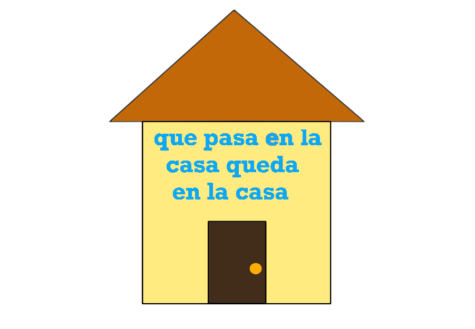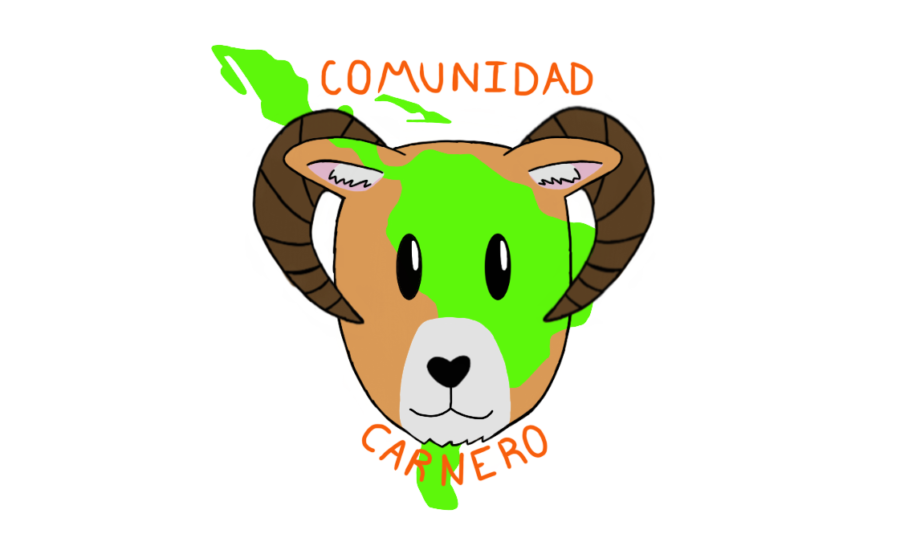Estigmas de Salud Mental en la Comunidad Latino
¡Bienvenido al artículo primero de La Comunidad Carnero! Esta columna está dedicada a los latinos en RHS porque necesitamos estar más presentes en los medios de comunicación. ¡El equipo de Rampage está aquí para apoyar y expresar sus voces!
Me gustaría comenzar esta columna hablando de una tema crítico que a mi parecer impacta a la comunidad latina: la salud mental. Miles de personas tienen enfermedades mentales que también afecta a nuestra comunidad. Desafortunadamente, muchos no preguntan por los recursos o la ayuda que necesitan para cuidar sus mentes.
Una de las razones principales por las que la comunidad latina no busca ayuda mental es por las barreras lingüísticas. Cuando varias familiares son bilingües emergentes y tienen dificultades en expresarse en inglés, puede ser difícil describir sus problemas a los doctores. Los traductores son muy útiles, pero cuando se comparte información personal a través de ellos, uno se puede sentir avergonzado. Es parte de la cultura.
Muchos no buscan ayuda porque se sienten avergonzados u obligados a continuar con sus responsabilidades. Ellos no quieren atraer atención hacia ellos mismos o, en casos extremos, ser llamados “locos” por sus propios familiares. Una gran cantidad de personas pueden decir que los síntomas mentales son problemas físicos, pero esos síntomas empeoran si no son tratados. Por esta razón siempre es importante buscar ayuda.
También hay un estigma de compartir problemas personales con los demás, sin importar si esas personas nos apoyan o no. Temas sensitivos o negativos casi no son hablado en el hogar y es pensamiento común en nuestra comunidad lo “que pasa en la casa queda en la casa.”
En bastantes ocasiones, la comunidad simplemente no tiene el dinero o recursos para pagar un profesional. Estas personas podrían vivir en la pobreza o tendrían menos cobertura/seguro médico. Un porcentaje de la población latina en los Estados Unidos también son indocumentados, lo que significa que tal vez tienen miedo de buscar ayuda mental porque puede terminar con deportación. Los adolescentes cargan el estatus de sus familias como un secreto o son las únicas con ciudadanía. Esto tiene un efecto negativo en los adolescentes y en sus familias. Discriminacion, a menudo, nos hacen sentir que no “pertenecemos” a los Estados Unidos. Tristemente, la salud mental es vista como un lujo que solo los estadounidenses ricos y de piel más clara pueden tratar.
Es vital que comencemos a cambiar nuestros pensamientos en nuestra comunidad, en RHS y en nuestras casas. Te invito a compartir este artículo con los seres queridos y los profesionales. Tus sentimientos siempre son válidos. Meditar, tomar aire libre y descansar de vez en cuando son cosas pequeñas que pueden ayudar a tu salud mental. Pero si estas actividades simples no son útiles, buscar ayuda profesional es una de las cosas mejores que hacer. Habla con un consejero de escuela y si no hablas inglés, busca si un compañero puede traducir para ti. Hay bastantes números de teléfonos que puedes llamar como la línea de ayuda nacional de SAMHSA (1-800-487-4889) que es libre de cargo, en español y confidencial. No estás solo. Nuestras voces merecen ser escuchadas porque tenemos problemas en nuestras vidas también. La cosa más importante es enfrentar a nuestros demonios y superarlos con la ayuda de los demás.
Mental Health Stigma in the Latino Community

Welcome to the first article of La Comunidad Carnero! This column is for the Latinos at RHS, who need more representation in the media. The Rampage staff is here to support you and your voices! I’d like to begin this column by talking about a critical issue that impacts the Latino community: mental health. Thousands are afflicted with mental illness which affects our people too. Unfortunately, many don’t ask for the help they need to take care of their mind.
One of the main reasons the Latino community doesn’t seek mental help is because of language barriers. When several family members are emerging bilinguals and have a hard time speaking English, it can be difficult to describe issues to doctors. Translators are very useful, but sharing personal information through them may feel embarrassing.
There is also a stigma about sharing personal issues with others, even if they would be supportive. Negative or sensitive topics aren’t talked about at home, and it’s common thinking in our community that “what happens at home stays at home.”
Many may not seek help because they feel shamed or obligated to carry their burdens. They don’t want to bring unwanted attention to themselves or, in extreme cases, be called “crazy.” A lot of people can put off mental symptoms as physical ones, but the former will become worse if untreated. This is why it’s always important to seek help.
On many occasions, the community simply may not have the money or resources to afford a professional. These people could live in poverty or have less health coverage/insurance. A certain amount of the Latino population in the U.S. are also undocumented, which means they may fear seeking mental help because it could mean deportation. Teenagers carry the status of their families a secret or are the only ones with citizenship. That takes a toll on everyone’s minds. Discrimination makes us feel like we may not belong in America. Sadly, mental health is viewed as a luxury only richer, lighter-skinned Americans can achieve.
It’s vital that we start changing our mindset at RHS and in our homes. Sharing with loved ones or professionals is encouraged, and your feelings are always valid. Meditating, taking a break, and going outside are little things that could help your mental health. But if these simple activities aren’t helping, seeking professional help is one of the best things to do. Talk to your counselor, and if you don’t speak English, see if you can get someone to translate for you. There are a lot of hotlines like SAMHSA’s National Helpline (1-800-487-4889) which is free of charge, in Spanish, and confidential. We’re not alone. Our voices deserve to be heard because we have issues in life too. The important thing is to tackle our demons and overcome them with the help of others.
